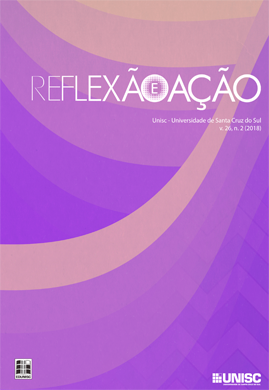THE FALLACY OF NEUTRALITY IN RESEARCH AND EDUCATION SUMARY
DOI:
https://doi.org/10.17058/rea.v26i2.8741Keywords:
Education, Research, School, Fallacy, Neutrality.Abstract
In this study, we problematize the tradition and the recent emergence of the established neutrality in research and education. The objective is to contribute to the debate around the philosophical, social and political implications of educational proposals that disregard the involvement of people and their utopias in the activities that involve research and education as human action in the world. Our reflections were based on bibliographical research, with small contributions from periodicals and documents from the area of education. The intention was to approach the issue of the fallacy of neutrality initially from specific concepts to arrive at a broader understanding and its implications for school and education. By treating the meanings of the words with which the theme itself is recorded, especially as to its grammatical, semantic, and dictionarised meaning, we propose to arrive at the most complex meanings in which we deal with its historical, social and political implications. Our main theoretical references were Hilton Japiassu (1975), the Law Project 867/2015, Citelli (2002), Bourdieu (2003), LDB (BRASIL, 1996), Florestan Fernandes (1980), Paulo Freire (1989; 1990); Edgar Morin (2007) and Boaventura de Sousa Santos (1987), among others. The conclusions are that not only is neutrality in research and education impossible, but they also confirm the thesis that defending their possibility is pure fallacy. Consequently, this leads us to the responsibility, on the one hand, to rethink our scientific, pedagogical and political practices as processes that are profoundly and intricately intertwined, interdependent and complementary. And, on the other hand, to make a commitment to desacralize scientific tasks by bringing them closer to people's daily lives.Downloads
Downloads
Published
How to Cite
Issue
Section
License
The submission of originals to this journal implies on the transference, by the author(s), of the printed and digital publishing rights. The author´s rights to the published articles are the author´s, the journal has the rights over the first publication. The author(s) can only use the same results in other publications, indicating clearly that this journal was the original publisher. Since we are an open access journal, the free use of articles is permitted for educational and scientific applications, as long as they inform the source according with the CC-BY license from Creative Commons.


